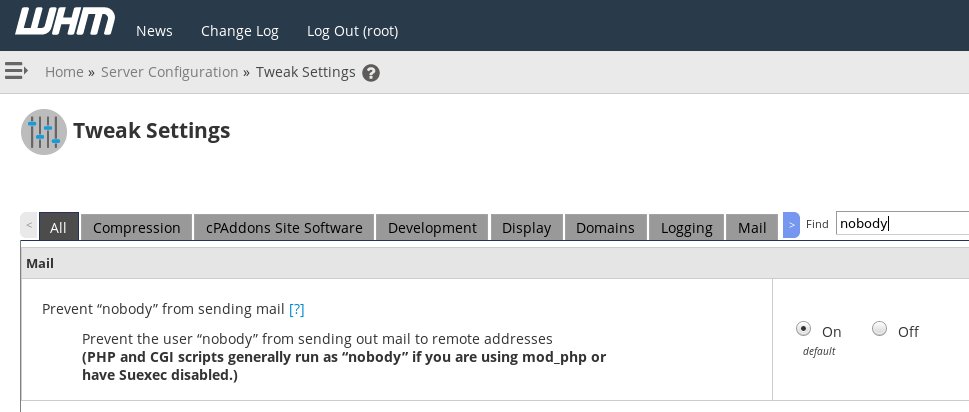PHP applications like WordPress, Joomla etc. send mail using a PHP feature (aka function) called “mail()”.
Hackers largely exploit the PHP mail function for spamming.
No wonder, Webhosting companies disable PHP mail function on the server as a rule of thumb.
This causes mail from applications like wordpress to fail with the following error.
"The e-mail could not be sent. Possible reason: your host may have disabled the mail() function."
Website owners still need a way to send mails from their websites. At Bobcares, we provide solutions for server owners as part of our Outsourced Hosting Support services.
Today, let us discuss two reasons for php mail failure and how we fix them.
What causes php mail function to fail?
When you use PHP mail function, mails are sent directly from the webserver identity aka “nobody” user.
Since all web requests originate from same “nobody” identity, tracking down the real spamming website in a server becomes difficult.
So Hosting companies defend PHP mail () function abuse in two ways:
1. Prevent “nobody” user from sending mail
As a known source of spam, most Web-hosting servers prevent all mails from “nobody” identity.
For example, in a cpanel server, there is an option to turn OFF mails from nobody as shown in image below.

But this action will block mails from legit users too, unless there are remedial features on the server.
So, our Support Engineers enable special php modules like suphp, fastcgi, etc., which use website’s own identity to send mail.
This helps us to configure the mail server to limit the number of mails sent from each website.
2. Mail function present in disable_functions list of php.
Hackers can make use of certain php functions like “shell_exec”, “system” etc. to attack a server.
So Web-hosting companies disable such dangerous php functions on the server.
When PHP mail () function is also added in the disable_functions list, even mails from legit users are blocked.
In such servers, we help website owners configure their sites to send mail through the SMTP port instead of the PHP mail() function.
For this, we set up plugins and modules for websites such as “WP Mail SMTP” for wordpress, PHPMailer for Drupal etc.
In this way, all mails from the websites bypass PHP mail function, and are sent through the SMTP port of the mail server (like how mail clients like Outlook do).
Conclusion
PHP mail () function failure normally happens due to restrictions in the Web-hosting server. Here we’ve discussed two causes our Support Engineers have seen and how we fix it.








mail function not working
If you are still having the issue we’ll be happy to talk to you on chat (click on the icon at right-bottom).